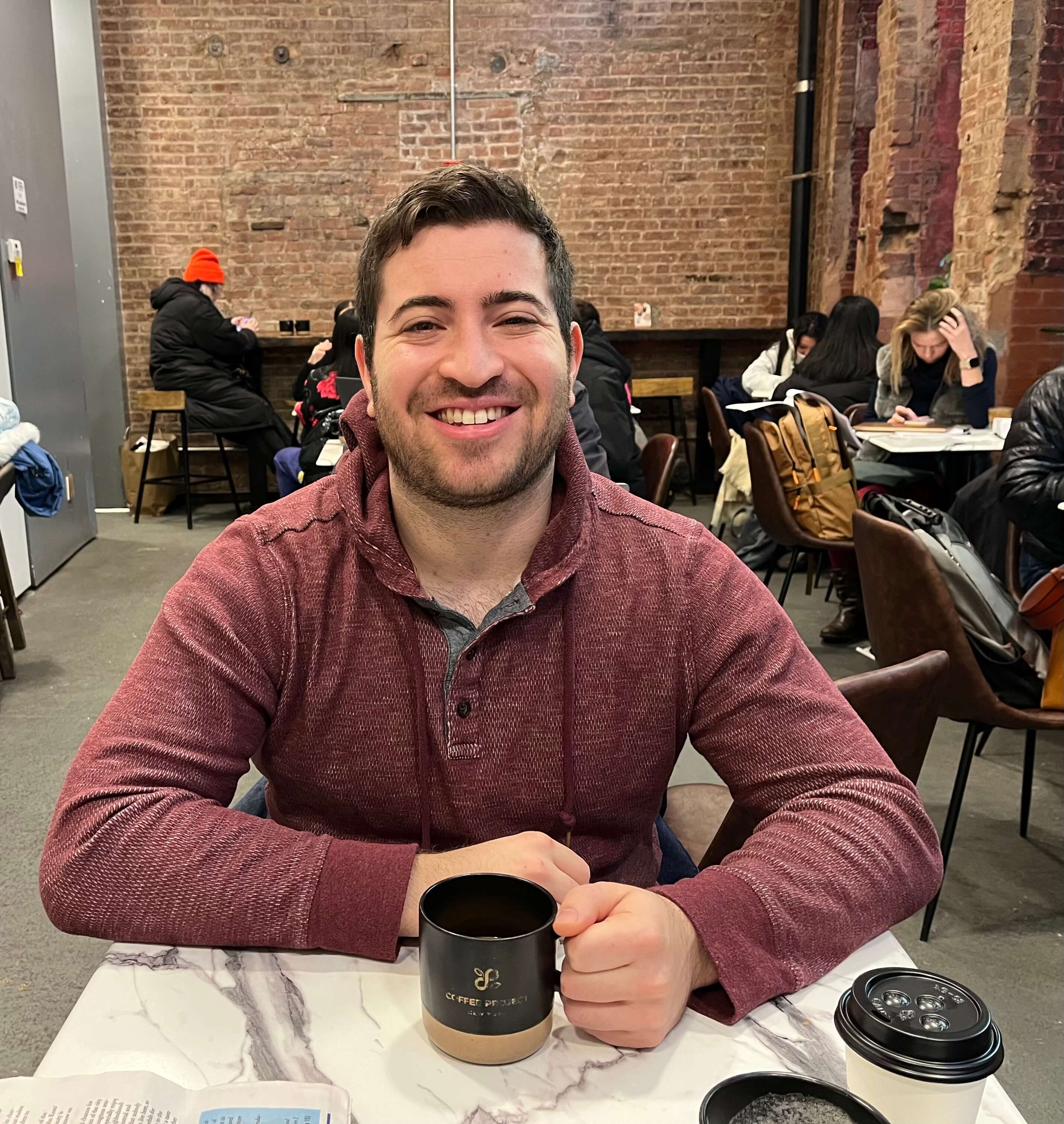A Boomer talks with
a Millennial.
Boomer– R.J. Cirillo
Millennial – Jacob Cooper
We are drinking coffee in Fort Greene ( 2 cups $11)
R.J. “The term ‘Boomer’ has become almost a put down, what’s your reaction to that?”
Jacob- “It is a general stereotype because we feel the attitude of the ‘Boomers’ towards us is negative, all that “avocado toast” stuff. But it’s not a bad thing really. I actually have some very fun people older than me that I like to hang out with.
R.J.- “So there are a few of us you’ll tolerate.”
Jacob- “Yes a few.” (laughs)
R.J. “So, as boomer I always sat down with a cup of coffee. Now I see people, couples walking down the street, drinking their coffee from takeout cups and travel mugs. Why is that.?”
Jacob- “I think my friends are often in a hurry and it’s part of the routine. Like you are walking to work, going to the subway. It’s not a special moment, just part of the day. You pick it up and move on to your next destination as quickly as possible.”
R.J.- “So it’s all part of the flow, because the old term “coffee break” has been absorbed. It was a pause in the workday which my view has been abandoned in the name of efficiency.”
Jacob- “When I worked in an office, the coffee break would be walking to get coffee, coming back and drinking it at their desk.”
R.J. – “Got it. I went to Hunter college in 1969, it cost $300 a semester.”
Jacob- Jealous!”
R.J.- “So the question is, what’s your reaction the sky rocketing costs of college tuition today?”
Jacob- “Actually it did not affect me personally. As long as I worked hard and studied hard, my parents were willing to cover the costs. I have friends who are burdened with debt, and I understand how hard it is.”
R.J.-BTW where did you go to college?
Jacob- “I went to Cornell.”
R.J.- “Oh, like Andy Bernard.”
Jacob- “Yeah, the Nard Dog, haaa!”
R.J.- “I moved out when I was 18, rented a one bedroom on Albermarle Road for $90 a month. I know what rents are now, reaction?
Jacob- “Well it’s one more thing for us to overcome, especially if you have the extra burden of college loans.”
R.J.-“Agreed. Regarding relationships, human interaction. In the ‘60s there were high school dances, at which a boy would go up to a girl and ask, “Would you like to dance?” I was very direct, face to face, human to human. What are things like now in terms of people meeting each other?
Jacob- “I have been dating for almost a year now, out of a relationship and dating again. So, if you want there are things to do where you can meet people directly. The Brooklyn Museum has sort of a get together every Wednesday, and of course bars are everywhere. And there are dating apps which are also useful. I’ve been using one called “Hinge.”
R.J.- “Hinge, how does that work?”
Jacob- “Basically you post 6 pictures of yourself, interspersed with a bunch of questions like what’s a ‘dealbreaker’ for you? Or like what gives you the ‘Sunday Scaries.”
R.J.- “Sunday Scaries?”
Jacob- “It’s a term for not wanting to go back to work of Monday.”
R.J.- “Right, I knew that!”
Jacob- “So I’ll put up the best current pictures of myself and dive in. I actually like this way of dating better, it’s clearer. You’re not spending tons of time, there’s no in person rejection. I mean there is if you go on a date and you don’t like each other.
R.J.- “Is there a charge for this service?”
Jacob- “Hinge is free for a certain number of contacts, but if you want total access, there is a charge. When you think of it. A monthly fee for an algorithm that puts you in touch with hundreds of like-minded people is much cheaper than going to bars. And just an FYI, the guy always pays for the first date, the girl might offer but you say no.
R.J.- “Hmmm, so some things change some stay the same. Last question, I was 11 years old when JFK was elected president. Now all the top politicians are senior citizens. Is it possible for them to understand and represent your generation?”
Jacob- “I have a small start up and I can’t do most of the work, but I have a team of excellent people. I have been happy with Biden, he’s not getting any younger, but he seems to appoint good people. But if you are Trump, and you bring on people who are worse than you, it is awful. Biden has done good things, going back to the student loans we spoke of. His forgiveness program, though it doesn’t affect me, has helped my generation.
R.J.- “Thank you Jacob.”










